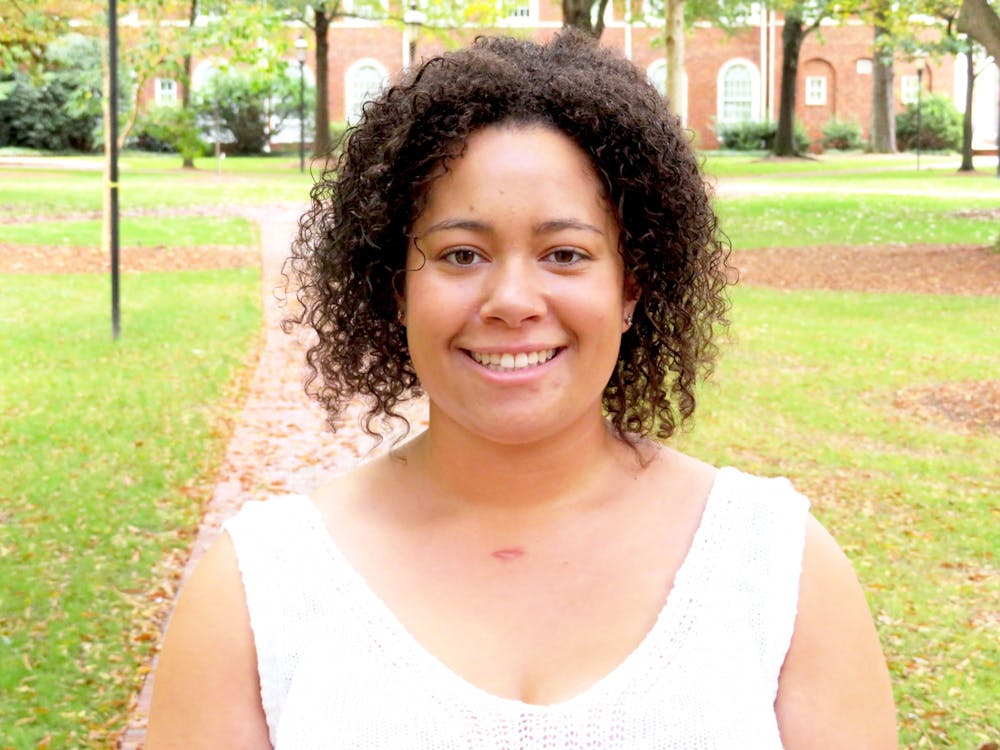As a biracial college student who has experienced incidents of hate, I constantly ask what it will take for the school to take hate seriously.
This semester, an Elon University student said they almost got run over by racist people in a shiny white GMC truck. The student immediately called campus police. She was then told that it was not an Elon University problem but a town of Elon problem, despite this happening on campus.

This is not the first time that campus police have heard about this truck. It’s the same shiny white GMC truck that most students of color on campus saw last year and have repeatedly seen this year driving down the road with its passengers blatantly yelling racial slurs.
Despite Elon preaching diversity and belonging, when something like this happens, the school refuses to take responsibility and approach the issue. How many incidents will it take for someone to pay attention to the minority community here on campus?
This is more than an Elon problem. Hate incidents happen everywhere throughout the U.S. An FBI report showed that the number of hate crime reports at schools or colleges increased by 36% in 2017.
According to the Department of Justice, approximately 250,000 hate crimes were committed each year in the U.S. between 2004 and 2015, but only 2% were reported to the FBI.
However, recently proposed legislation would change this trend. The Khalid Jabara and Heather Heyer National Opposition to Hate, Assault, and Threats to Equality Act of 2019, or Jabara-Heyer NO HATE Act, would allow the Department of Justice to give local and state governments grants to help implement a new system for hate crimes investigation.
This system would require training and education for law enforcement on dealing with hate crimes, improving the reporting of these crimes and establishing hate crime reporting hotlines. If the state or local government did not provide the required data, they then would be forced to return the grant.
This type of legislation would prove to be beneficial in campus communities, incentivizing local law enforcement to report these crimes and help develop hate crime prevention programs. By reporting these crimes, law enforcement and Elon’s administration would be better able to tackle these issues on campus which would allow them to put resources into preventing future attacks.
Other improvements could be made in how officers are trained. Campus police should be required to complete training on how to handle and respond to hate crimes. Campus officer training is very similar to that of a county officer, but their training ultimately is determined by each state.
Though states run their police academies differently, training sessions typically last about 25 weeks. Only 12 states require training to cover instructions on hate crimes, and several states don’t cover training on hate crimes at all.
Even for the states that do require some training in this area, it is often not enough. Officials who oversaw police training told ProPublica that their “recruits spent about 30 minutes of class time on the subject,” which is unacceptable. Recruits and current personnel need to be thoroughly and formally trained on how to investigate and report these crimes when they happen.
Taking hate crimes seriously might reduce other problematic behavior such as hate speech. This will send the message that hate crimes are not tolerated. It will also make students on college campuses feel heard. We need to talk about these problems within the system and raise awareness of the Jabara-Heyer NO HATE Act.
Colleges and universities need to increase reporting of these crimes and provide more training for their officers before it’s too late. Raise your voice. Report hate.


